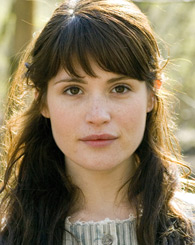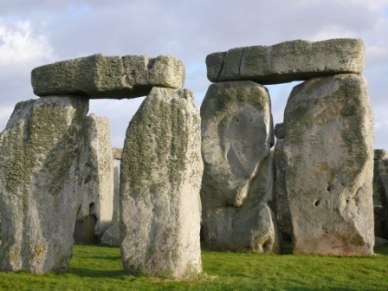 The “lite version” of Part 1 has turned into a heavy and somber continuation on PBS Masterpiece. In this second and final part, screenwriter David Nicholls and director David Blair unleash the gloomy Hardy worldview unreservedly, releasing the bleak and dismal elements that are almost too much for new year viewing. The music has played a major and dramatic role in setting the tone and mood of the movie. The cinematography too, in contrast to the lush green opening in the first part, has drawn us into a slough of mud, grey and black. Hardy’s view of nature lamenting the tragic condition of his heroine is effectively conveyed, engrossing albeit a tad too melodramatic.
The “lite version” of Part 1 has turned into a heavy and somber continuation on PBS Masterpiece. In this second and final part, screenwriter David Nicholls and director David Blair unleash the gloomy Hardy worldview unreservedly, releasing the bleak and dismal elements that are almost too much for new year viewing. The music has played a major and dramatic role in setting the tone and mood of the movie. The cinematography too, in contrast to the lush green opening in the first part, has drawn us into a slough of mud, grey and black. Hardy’s view of nature lamenting the tragic condition of his heroine is effectively conveyed, engrossing albeit a tad too melodramatic.
Kudos to David Nicholls for a meticulous job in adaptation. He has kept the plot intact, for the most part faithful to Hardy’s book. While a couple of incidents are left out, quite meaningful and symbolic too, but not to diminishing effects. These include the sleepwalking episode, the Freudian slip of Angel’s innermost longing to love Tess despite all restraints. The second being Tess’ mercy-killing of pheasants wounded by hunters, a sensitive portrayal of her own predicament. However, Hardy would not have her killed off so easily. Like the sadistic “President of the Immortals” in his view, Hardy the author wreaks havoc on his heroine, leading her into scenes after scenes of tragic events beyond her control.

Tess can forgive Angel for his sexual sin, but he refuses to forgive her. Actually, what sin has she committed if she was innocently violated by Alec D’Urberville when she was a young girl. She loves Angel unconditionally, but his love for her is marred by constraints. Later, she cannot avoid stalking by Alec, who keeps preying on her, and in her most needy and vulnerable, takes advantage of her again by manipulating her love for her family. Whatever dignity she may have Tess ultimately sacrifices it for her beloved family. But I admire Tess’ integrity, yes I like to see it as integrity, and not pride, that has sustained her until that very end when she finally has no choice but to yield to Alec’s sinister scheme.
It is for this reason that I find Gemma Arterton’s portrayal of Tess as just a proud and feisty gal to suit modern viewers incongruent with the book. She may look innocent enough, but her performance at times is contrived and lacks the striving complexity required. But her tears are effective and moving, I must say. While Hans Metheson has delivered his diabolic role adequately, Eddie Redmayne as the losing lover at the end is a bit lacking.
And Angel, oh, what a tragic character. The seemingly altruistic lover cannot stand the test against social mores. In the book, the chapter describing the mutual confession of sins between the newlyweds is aptly entitled: “The Woman Pays”. What an irony of double standard! This might well be the name of the novel. While Hardy may have held an entangled and agnostic view of the transcendent, his social critique is incisive and spot-on.

At long last, Tess and Angel can enjoy marital bliss, but only for a painful, fleeting moment. Tess says in her anguish: “It is too late”, the four words that define the tragedy of her life. As a young girl, she did not understand the meaning of Alec’s sinister advances until too late. And now as a married woman, her husband has come to her rescue too late. I learn from the end notes of my Penguin edition that the original title of the book was Too Late, Beloved! What a heart-wrenching story.
PBS has a link to an online interactive Q & A with screenwriter David Nicholls. In there he answers the many questions viewers have regarding the process of turning book into film. I have enjoyed Nicholls’ previous adaptation of Blake Morrison’s memoir into the movie “And When Did You Last See Your Father”, starring Colin Firth and Jim Broadbent, an excellent and sensitive film. I look forward to seeing more of Nicholls’ work in the future.
~ ~ ½ Ripples
Click here to go back to Tess of the D’Urbervilles, Part 1.
*****
Hello Arti! My daughter Katie is really enjoying this series. Ah, alas I am at that stage of life where it is hard for me to stay awake this late. We finally got a DVR this week and I’ll be able to record programs to watch while I’m still awake!! :0)
Ellen: Great… a DVR! Just wondering whether the effect of wathcing this movie in broad daylight would be different from watching it at night. Umm, let me know what you think of it… only four hours.
Arti
LikeLike
Thanks for the mention about the first title being “Too Late, Beloved”. How ironic.
Great review Arti, as always.
Hardy’s chapter titles are biting social commentaries … like “The Woman Pays”.
Thanks for you comment, Laurel Ann.
Arti
LikeLike
It IS a tragic story. I could not get past the coincidences and melodrama in the film, which somehow I could in the novel, perhaps because of Hardy’s masterful writing, which I found more riveting than the pictorial version. Great review as always, Arti.
Hi Vic,
Maybe because Hardy was such a master that I felt utterly frustrated with the misfortunes striking down on Tess as I read the book, a feeling that’s much lessened when I watched the movie. Thanks for reading yet another review, after written such a detailed one in your blog.
Arti
LikeLike